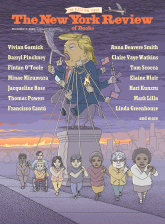Democracy works best when politics don’t mirror the country’s deepest social divisions, and all sides can accept defeat and a transition of government. As Trump flags replace Confederate flags on truck caravans and at Republican rallies, we are about to experience a presidential contest, perhaps the first since 1860, when it is possible that millions on each side will not find defeat acceptable.
Democrats represent a coalition held together loosely by an ideology of inclusion, a commitment to active government, faith in humanistic and scientific expertise, and an abhorrence of what they perceive as the monstrous presidency of Donald J. Trump. Republicans, with notable defections, are a party held together by a commitment to tax reduction, corporate power, anti-abortion, white nationalism, and the sheer will for power. We are essentially two political tribes fighting a cold civil war that may determine whether or not our institutions can survive the strife fomented by a pandemic, a racial reckoning, an economic collapse, the death of a transcendent Supreme Court justice, and the reelection campaign of our homegrown authoritarian president.
How can this be the case—not in the dictatorships of Belarus, Hungary, Turkey, or Venezuela, but here in the US, during the 233rd year of the Constitution? The answers are historical and structural. A modern campaign of voter suppression conducted by one of our parties grows with warped intensity. Changing demographics and the 15 million new voters drawn into the electorate by Barack Obama in 2008 have scared the Republicans—now largely the white people’s party—into fearing for their existence. With voter ID laws, reduced polling places and days, felon disfranchisement, voter roll purges, restrictions on mail-in voting, an evisceration of the Voting Rights Act of 1965, and a constant rant about “voter fraud” without evidence, Republicans have soiled our electoral system with undemocratic skullduggery. They are also frightened of the results of the 2018 midterm elections, when voter turnout favoring Democrats was 67 percent for ages 18–29, and 58 percent for ages 30–44. Nearly 30 percent of the electorate is now Black, Hispanic, Asian-American, or another ethnic minority. White nationalism and conservatism are colliding with the future. There is no Republican majority in America, except on election days. It all depends on who votes and who is allowed to vote.
President Trump frequently claims that “the only way we’re going to lose is if the election is rigged.” He also loves to milk cheers from his crowds by warning them to “watch all the thieving and stealing and robbing” of votes by Democrats. Every reasonably informed American knows that the only things rigged in this election are the Electoral College itself (in favor of less populated states that tend red), the decidedly undemocratic institution of the US Senate (a Republican majority represents a population smaller by 15 million than the Democrats), and the myriad ways the current administration has manipulated government agencies to influence voting.
The Republican Party has become a new kind of Confederacy. They are secessionists without taking the revolutionary step of seceding, power-obsessed rebels who fight to preserve a bygone America by gaming the system. They have managed to win the presidency twice without the most votes, maintain control of the Senate although vastly outnumbered in the national electorate, and build a majority on the Supreme Court by stealing an appointment that belonged to a sitting Democratic president.
According to the historian Stephanie McCurry in Confederate Reckoning (2010), the original Confederates of 1861 took “perverse pride” in being “out of step” with the modern world. One Southern minister saw the Confederate nation as a righteous minority of “three hundred and fifty thousand white men” commanding the labor of “four million African slaves” in the service of civilization. That “nation” faced colossal defeat four years later; a similar political fate may yet befall a Republican party unhinged by today’s world.
This new Confederacy is partly regional and also rural (a declining population). It knows what it hates: the two coasts, diverse cities, marriage equality, certain kinds of feminism, political correctness (sometimes with reason), university “elites,” and “liberals” generally. It is racial and undemocratic. It twists American history to its own ends, substituting “patriotism” for scholarship and science. It has weaponized “truth” and rendered it oddly irrelevant. It has brought us almost to a new 1860, an election in which Americans voted for fundamentally different visions of a proslavery or an antislavery future. For now, this minority interest fights for its existence from within the union by trying to own it.
We cannot imagine the same violent result this time, even as we resolve to save our democracy from the grip of minority rule. But a preservation of our Union will not come from merely calling out moral hypocrisy, or wringing our hands over cynicism, or even from the power of numbers. Democracy has to be sustained by the same will to power that can destroy it.
Advertisement
This Issue
November 5, 2020
William Barr: Enabler in Chief
A Society on the Verge of a Nervous Breakdown



